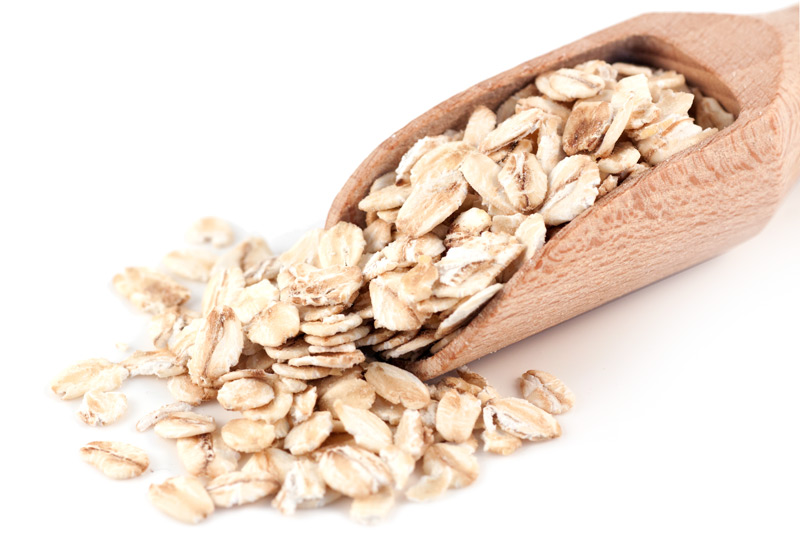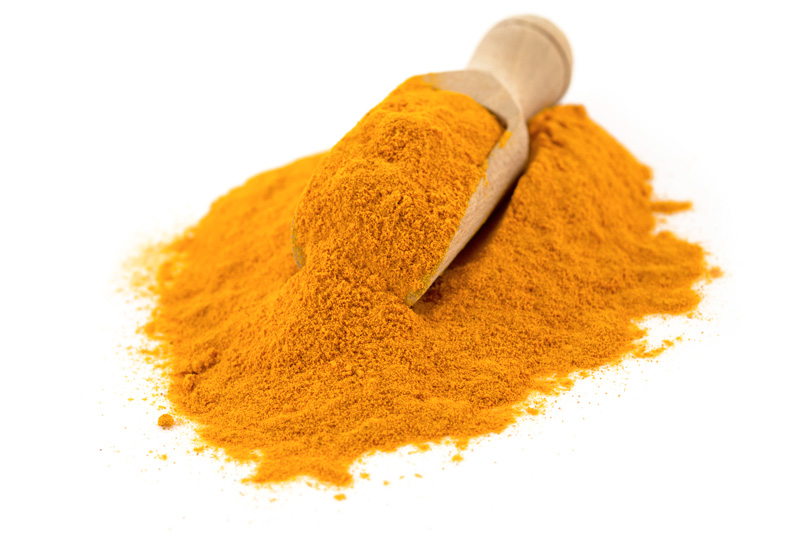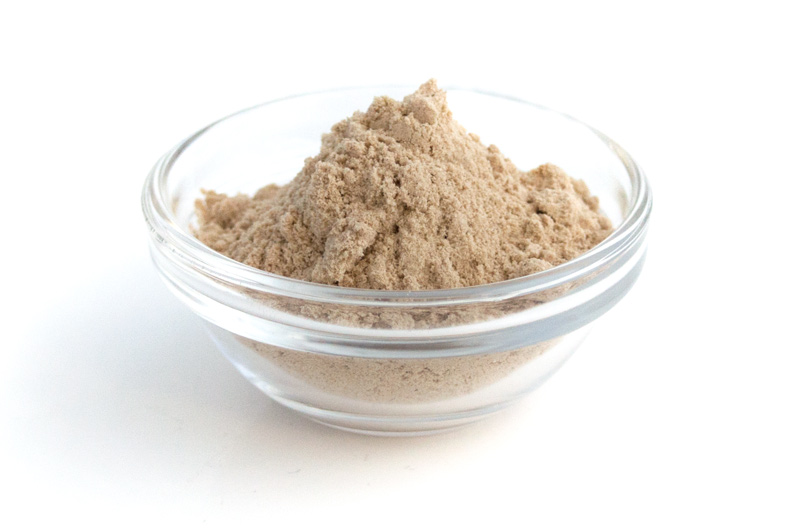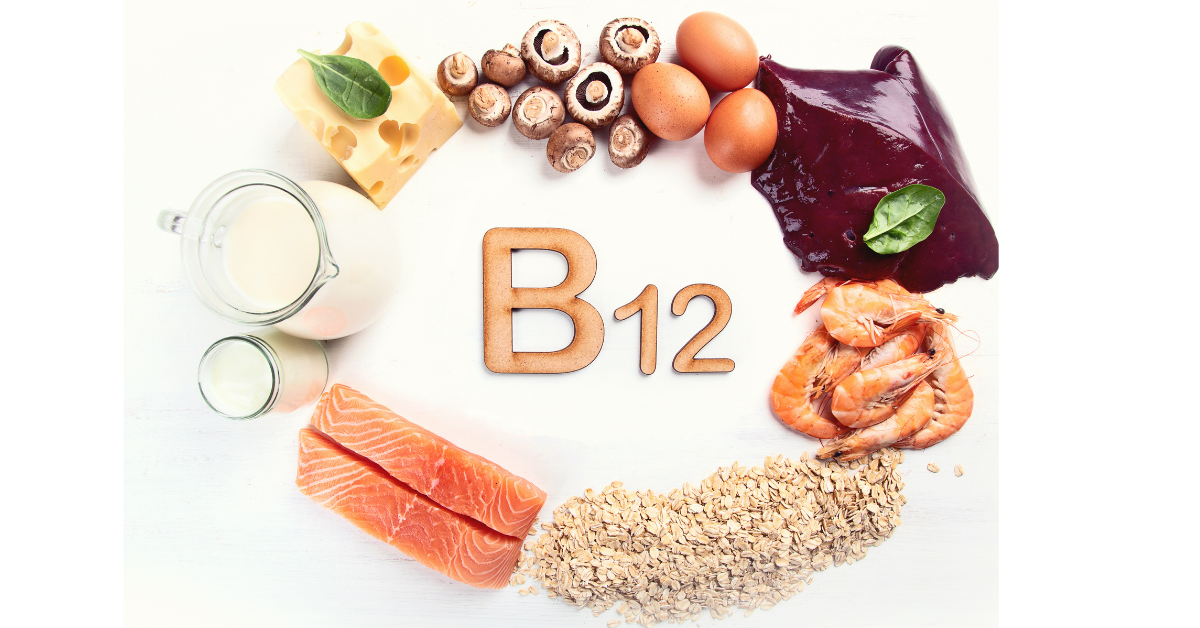Articles
We all want beautiful hair, but sometimes it’s easy to become confused by the huge amount of products available in the shops. The more times we change colour, use heat treatments or add chemicals to our locks, the weaker and more brittle our hair gets. This is even before we factor in increasing levels of air pollution, which can spell disaster for the health of our follicles. In 2019, researchers showed that polluted air, similar to that found in many cities, can significantly reduce our levels of beta-carenin, the protein responsible for hair growth.[1]
All this means we need to take extra-special care to have a beautiful, lustrous, healthy head of hair. So here are our top tips to achieve hair heaven….
Read More »How many times have you heard ‘Breakfast is the most important meal of the day’? Well, it turns out this isn’t just an empty phrase – there’s real truth in it, and a lot of science backing it up.
In Europe, up to 30% of people skip breakfast, but in an analysis of 47 clinical studies, researchers found that children who reported eating breakfast on a consistent basis tended to have superior nutritional profiles than their breakfast-skipping peers, and breakfast eaters generally consumed more daily calories yet, amazingly, were less likely to be overweight. They also discovered that breakfast consumption may improve kids’ cognitive function related to memory, test grades, and school attendance.[1] However, it’s crucial that the breakfast we eat is nutritionally sound. A Spanish study found that while eating a good quality breakfast leads to higher quality of life and lower rates of stress and depression, even skipping breakfast is better than eating a poor quality one.[2] Commercial breakfast cereal manufacturers can be devious – just because they may splash the fact that their product is fortified with vitamins all over the packaging, it doesn’t mean that they’re not still packed with enormous amounts of sugar and fat. Not only do added sugars actually reduce energy levels and deplete our nutrient levels, they are also a massive factor in obesity and chronic disease.[3]
So here are some of our favourite healthy ways to start the day, which will fill you with the nutrition you need to have a happy, productive day….
Read More »Oats are one of the most widely used grains in the world – they’re cheap, plentiful and hugely versatile, forming the main ingredient in a huge number of dishes, both sweet and savoury. On closer examination, they’re also one of the most intriguing foods on the planet.
Oats are a cereal crop, meaning they’re a plant in the grass family which yields an edible grain. This can be purchased in its whole form, often referred to as oat groats, but is more commonly sold ground into oatmeal or flattened into flakes, also known as rolled oats (or porridge oats). They can also be milled into oat flour, which makes a lighter, softer loaf when added to a bread mix. They have an outer layer which is often removed and sold on its own as oat bran. This adds texture to bread and cakes when included in the mix. Oats can even be used to make a wonderful drink which is a great alternative to dairy milk. Oats can also be an excellent alternative to wheat for coeliacs and anyone wanting to avoid gluten, as they’re naturally gluten-free.
But are oats any good for us? Let’s have a look at some of the key points….
Read More »As rates of chronic disease rise across the planet, due in large part to increasing amounts of humans eating a more Western diet, drug companies churn out expensive new medications which come with dizzying lists of horrible side effects. Wouldn’t it be great if there was something cheap in your kitchen cupboard which had been proven effective at preventing and limiting the effects of many of these diseases, with no other side effects than staining your T-shirt?
Food that is heavy on calories but light on nutrition, and high in saturated fats, refined carbohydrates and sugar, plays a large part in the onset of Crohn’s disease, Alzheimer’s disease, cirrhosis of the liver, diabetes, cancer and many other illnesses. Plant foods are full of amazing compounds that can be stunningly effective at giving a powerful boost to our health – from epigallocatechin in green tea and resveratrol in peanuts to isothiocyanates in broccoli and rutin in apples, the compounds (or ‘polyphenols’) protect us by strengthening our body’s defences against all sorts of debilitating conditions. Very few of these, though, have such profoundly health-giving powers as those found in turmeric, a plant whose rhizomes are dried and ground to make turmeric powder.
So let’s take a closer look at this golden wonder….
Read More »A huge amount of herbal tea blends use hibiscus as their base, and if your fruity tea bag of choice produces a drink that’s deep red in colour and has a lovely, tangy fruitiness, it’s likely the ingredients will include hibiscus. But what is hibiscus, and is it only there for its pretty colour and lip-smacking taste, or is it any good for us?
Hibiscus is actually an umbrella term describing a variety of species of flowering plants in the Malvaceae family. The most commonly used of these is Roselle (Hibiscus sabdariffa), which is native to Africa and produces the lovely, colourful infusion we know as hibiscus tea. It’s commonly consumed in many countries such as Senegal, Nigeria, Sudan and Egypt, where it’s known as karkadé. It’s drunk both hot and cold, and has a tart flavour which is quite close to that of cranberries. Because of this, it’s commonly sweetened with sugar or honey.
Let’s delve deeper into this wonderful plant and investigate its awesome health-giving properties….
Read More »You may have heard of psyllium husks and wondered what on earth they are. You certainly won’t find them cropping up as an ingredient on Masterchef or The Great British Bake Off. So what are they, and what can they do for us?
The plantago ovata grows wild in Asia, North America and the Meditteranean regions of Europe, and it’s this which is the source of psyllium. Each plant can produce up to 15,000 tiny little gel-coated seeds, from which psyllium husk is derived.
Psyllium husks are available to buy in their whole form or as a powder. Psyllium husks aren’t eaten for their taste but instead for their extraordinary health benefits. So let’s take a further look at what these are….
Read More »The world of vitamins can be confusing, and the B vitamins are perhaps the most confusing of all! Weirdly, even though they’re numbered up to B12, there are only eight of them. The body needs all of them in certain amounts as they’re essential to make many biological processes run smoothly, and a deficiency can lead to some serious and debilitating medical conditions.
Anyone who becomes a vegan will soon learn that ensuring they take enough vitamin B12 is going to be an important part of their new existence – but everyone needs this unique nutrient, irregardless of whether they have a plant-based diet or spend all day eating beefburgers. But what is vitamin B12, why is it so important, and how can we get enough?
Read More »There’s no escaping the fact that the children of Britain are getting fatter, and when combined with a sedentary lifestyle with little physical exercise, this spells disaster for their future health. Children’s waistlines are expanding, with government statistics published at the start of 2021 revealing that nearly 10% of 4-5 year olds are now obese, with a further 13.1% overweight. At age 10-11 this increases to a whopping 21% of children in the ‘obese’ category, with an additional 14.1% classed as overweight.[1] It’s clear British kids need improved diets.
Public Health England suggests we feed children according to the Eatwell Guide, which recommends at least 5 portions of fruit and vegetables per day, as well as some potatoes, bread, rice, pasta or other starchy carbohydrates, some nuts and pulses, a small amount of dairy, and very limited oils and fats.[2] It also recommends we strictly limit junk food (which often contains staggeringly unhealthy trans fats) as well as sauces and fizzy drinks (which can contain massive amounts of sugar).
But what else can we do to ensure our kids develop healthy eating attitudes, a passion for good food and healthy, active bodies? Let’s have a closer look….
Read More »Healthy, beautiful nails are an important part of how we present ourselves – and more than that, they’re often indicative of our level of overall health, so we should always take note of what they’re telling us, and tweak our behaviour accordingly.[1]
There are several things we can do to improve the appearance and the structure of our nails. One is to avoid strong chemicals for washing and cleaning, which can adversely affect the integrity of nails. Always opt for natural cleaning products, and make sure you also choose natural beauty products which are kind and nourishing instead of harmful and damaging. Collagen is important too, and if your body isn’t producing enough naturally, it may be worth investigating taking it in supplement or powder form.
If you’re looking after yourself and eating a healthy diet packed with nutrition, though, you shouldn’t need to rely on supplements. So let’s look at the best things you can eat to have the best nails on the block….
Read More »It’s no wonder that two-thirds of Brits report being on a diet “most of the time”.[1] When we go shopping, there’s an overwhelming choice of calorie-dense, nutrient-light junk foods which tempt our taste buds but spell disaster for our health and waistlines. In this era of high-fructose corn syrup and trans fats, the old saying ‘a minute on the lips, a lifetime on the hips’ has never been more true!
The NHS urges us to check our BMI regularly and consider going on a weight loss diet if we find we are in the ‘overweight’ category or higher.[2] They also stress that any regime we follow should promote safe and sustainable weight loss, encourage healthier food choices, include realistic exercise plans and teach skills to prevent weight regain.[3]
So with so many different diets out there, let’s take a look at some of the most popular ones….
Read More »








